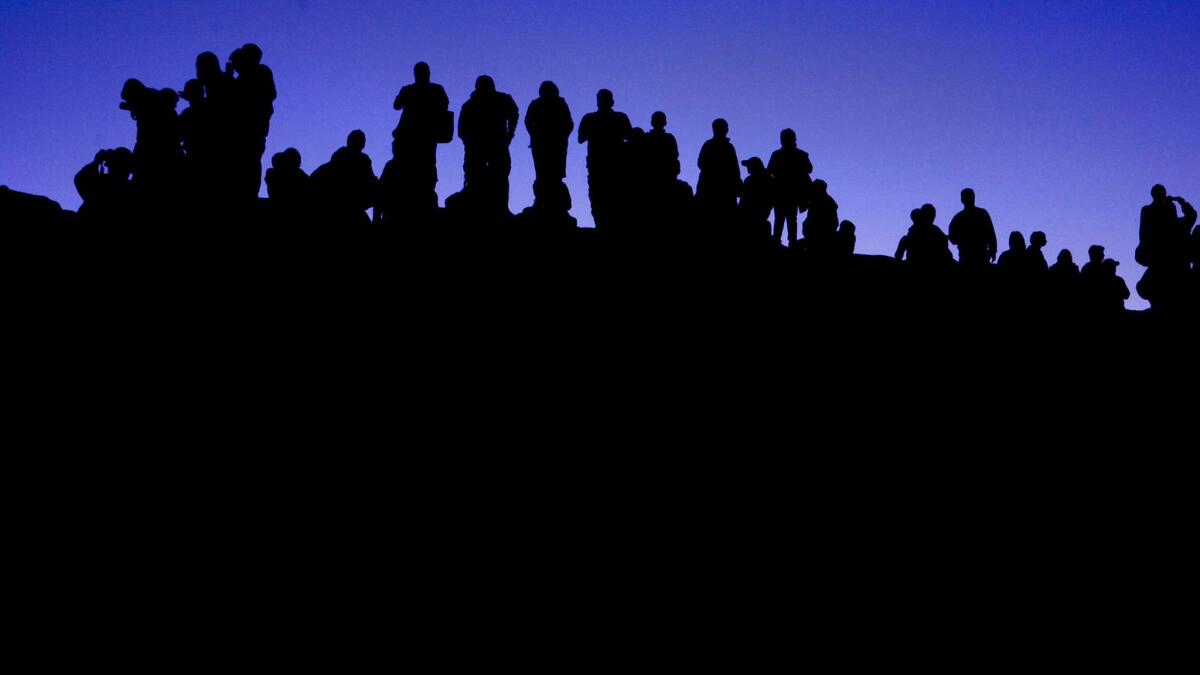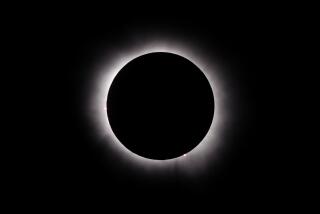Rare Blue Moon rises tonight: Make sure you look up, or you’ll miss it!

Yosemite’s Glacier Point is a popular spot to turn your face to the nighttime skies.
A rare blue moon is rising tonight, and it will be hard to miss: Just look up.
But if you really want to experience the blue moon, John Barentine, a manager with the International Dark-Sky Assn., says you need to make an effort to get away from it all--”it” being light pollution.
The blue moon will be all the more majestic if you can leave the city lights behind, he said: “If people wanted to see [the blue moon] and fully appreciate it, they’d have to get out of the L.A. area entirely.”
We asked Barentine to pretend he could teleport to anyplace in the world to see tonight’s Blue Moon. “The middle of the Sahara in Africa,” he said without hesitation, “one of the darkest places on the planet.”
Then we asked him for another dark place a little closer to home. “The Mojave desert. It’s hard to imagine being in a darker place in the lower 48.”
For Southern California, he suggested Death Valley National Park, Joshua Tree National Park and Anza-Borrego Desert State Park. Heading north, he suggested Yosemite National Park and Mono Lake.
If you can’t drop everything, pack up the car and jet out there tonight, no worries. You can always hit up Griffith Observatory, which is open until 10 tonight.
While you’re checking out the blue moon, you might want to drop a little bit of trivia on your pals:
A “blue moon” refers to the unusual occurrence of two full moons in a single month. The second full moon of the month is dubbed a “blue moon.” It happens so infrequently, it’s given rise to a the saying “once in a blue moon.”
Don’t expect tonight’s moon to be all that different from any other full moon, according to NASA. That said, there are rare occurrences that can make it appear that the moon is taking on a bluish cast, such as during a forest fire. (Let’s cross our fingers and hope that won’t happen tonight in bone-dry California.)
Barentine’s organization encourages the creation and protection of natural spaces where there is little to no artificial light. Such places are needed, he said, for a variety of reasons including the protection of wildlife and energy conservation.
But just as important, such natural spaces help us connect with something deep inside, something primal.
“It connects us to a time and place in our humanity before there was electrical light and people could see the Milky Way,” he said, and such an awe-inspiring view served to unite us all.
Today, people in urban areas can be stunned and caught off guard when they venture out to the wilderness and glance up -- and are mesmerized. “It’s all there every day, but people don’t know it,” he said.
Are you catching the Blue Moon? Tweet me some pix @renelynch, cause I’m stuck indoors (working).
More to Read
Sign up for The Wild
We’ll help you find the best places to hike, bike and run, as well as the perfect silent spots for meditation and yoga.
You may occasionally receive promotional content from the Los Angeles Times.







